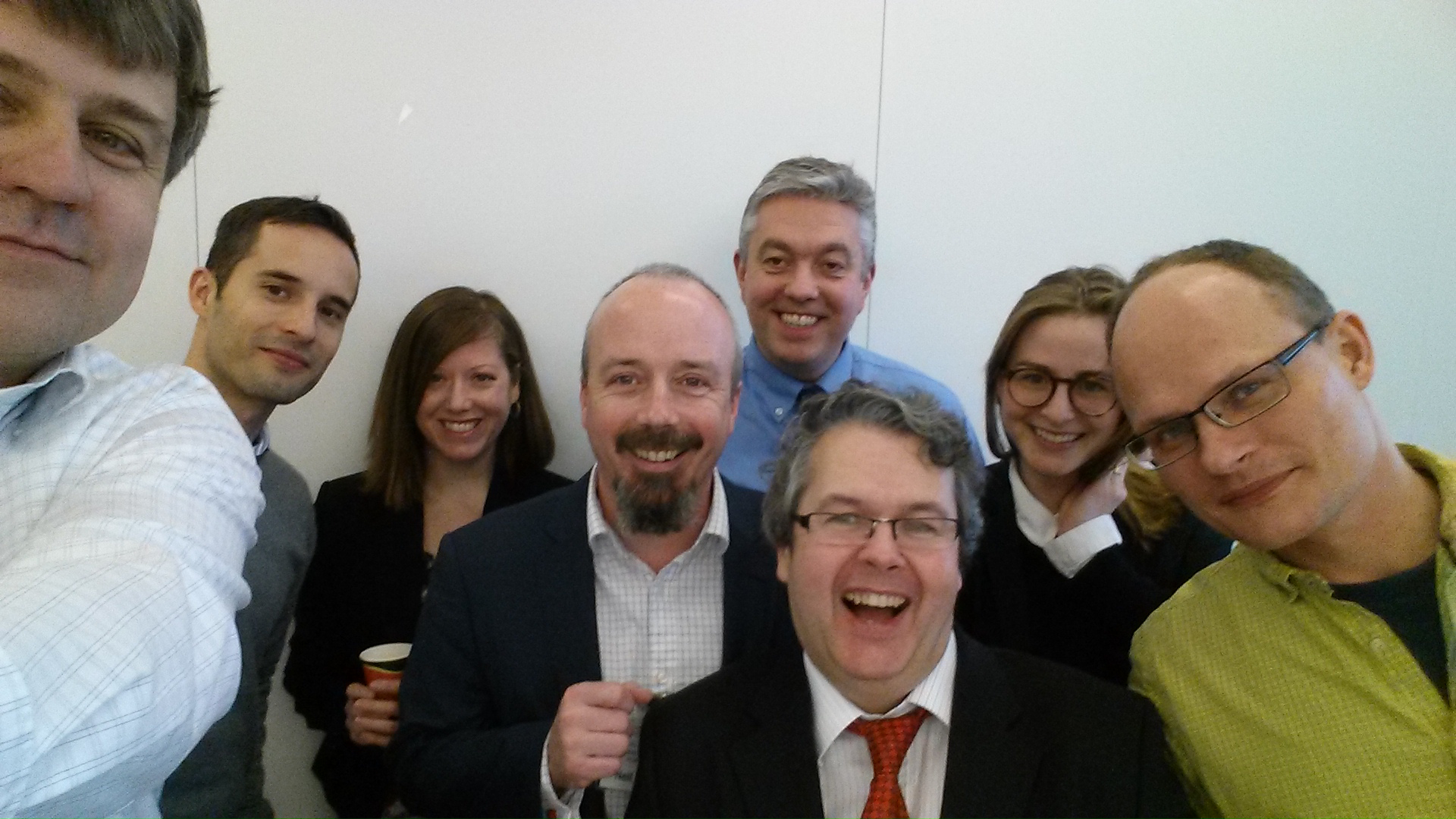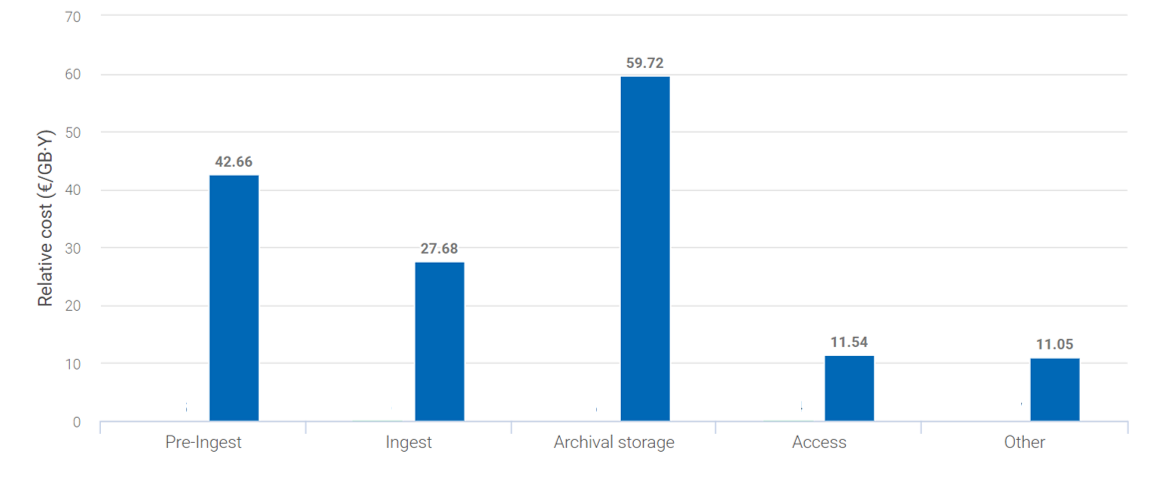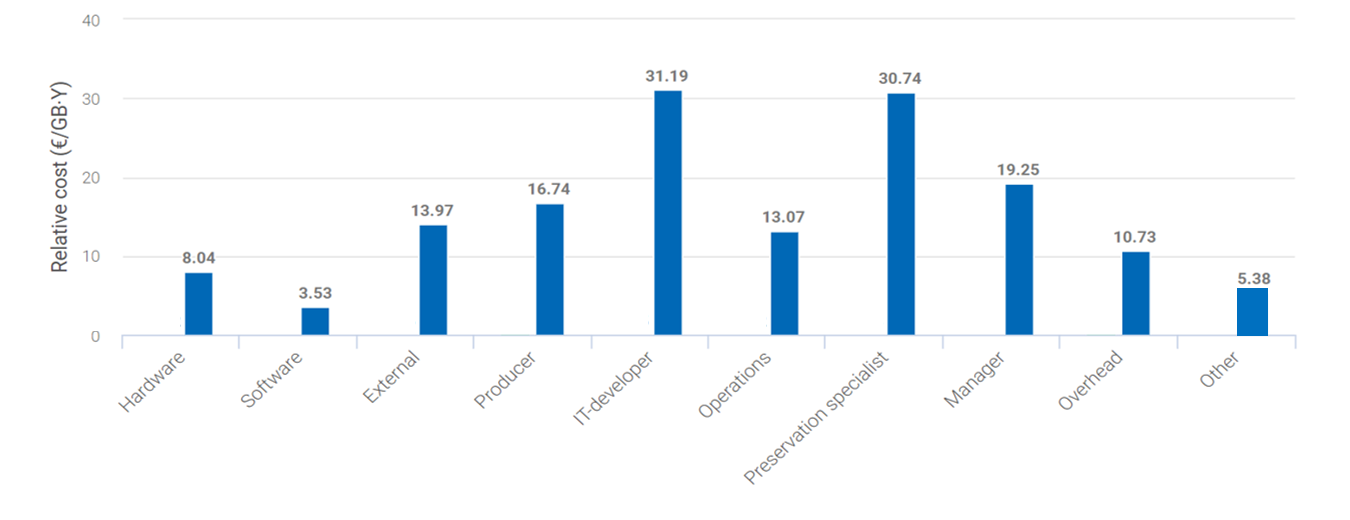It was around this time four years ago that I (and other members of the 4C Project) were breathing huge sighs of relief. The Project had just been awarded an ‘Excellent’ rating by the European Commission Review Panel, but perhaps more significantly the Curation Costs Exchange (CCEx) had been born!

A very smug 4C Project team, post 'Excellent' Award
What started out as a somewhat nebulous concept was soon whipped into the shape of a very clever little tool by the members of the Engagement Work Package. And it lives on today as the legacy of this Project.
But to start at the beginning, the 4C Project (or the Collaboration to Clarify the Costs of Curation) ran from 2013 – 2015 and came about because financial planning for digital preservation is, quite frankly, a tricky beast. And it is such a tricky beast because every organisation is different, and there is no ‘one size fits’ all answer to the question – “how much does digital preservation cost?”
Of course, there were, and still are, lots of cost models available to help you work out potential costs of preservation for your organisation, but the 4C Project – amongst its other objectives – wanted to clarify existing costs. And this is where the CCEx came in.
The CCEx was designed to help organisations identify what they are spending on parts of the digital preservation process, and on all of the people who are part of that process. It helps organisations see what other organisations are spending on these areas too. AND where there are differences – it enables the identification and introduction of potential cost efficiencies.
The project aimed to be and was successful in being ‘open and social.’ The team blogged its findings as it progressed through the project. It engaged and sought feedback from a wide range of organisation types and individuals – and ultimately ‘open and social’ is what it asked users of the CCEx to be. It asked them to share their own cost data so that the costs of curation could be compared with others, and clarified.
If you’re still flummoxed and haven’t a clue what I could possibly be describing, here’s a short video which shows you, in a bit more detail, how it does that…
Curation Costs Exchange: 'Understanding and comparing digital curation costs to support smarter investments' from Digital Preservation Coalition on Vimeo.
I am happy to report that since it was launched in 2015 – organizations have been sharing their data with the CCEx, and over 240 data sets have been submitted to date. And people are continuing to use it! Which is great news! We have datasets in the CCEx from national libraries and archives, public libraries, local record offices, universities, projects, vendors…
And based on all of these datasets, the CCEx can offer a Global Comparison of costs by Activity:

And by Purchases and Staff:

To confirm what you are looking at here - that is an AVERAGE GB/Y cost of curation (in Euros) - based on all of the datasets submitted to the CCEx.
However – a word of caution and a return to the earlier observation - there is no ‘one size fits’ all answer to the question how much does digital preservation cost? No organisation is average, and I highly doubt any organisation actually spends €152.64 per GB per year on their data. But it is useful to look at this in terms of trends – areas where more seems to be spent across the board – to see how your organisation compares. And to identify the potential for cost efficiencies to be introduced – if that’s your aim.
The CCEx can do some clever stuff, but there is always the opportunity to improve and we are currently looking at ways to do that right now.
So, in order to help us figure out priorities for further investment in the tool, if you have shared data and compared your costs (or even if you haven't) we would be enormously grateful if you could spare a few minutes to tell us what you think, by completing this very short form.
Thank you!
















































































































































